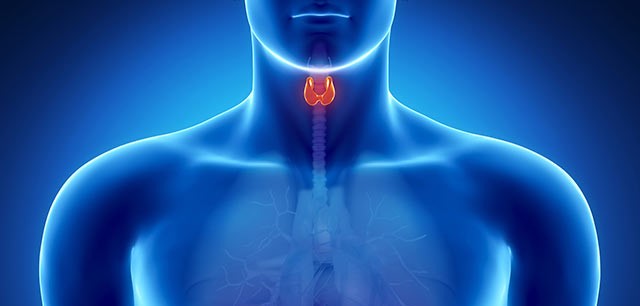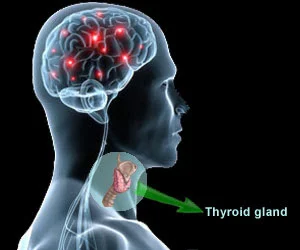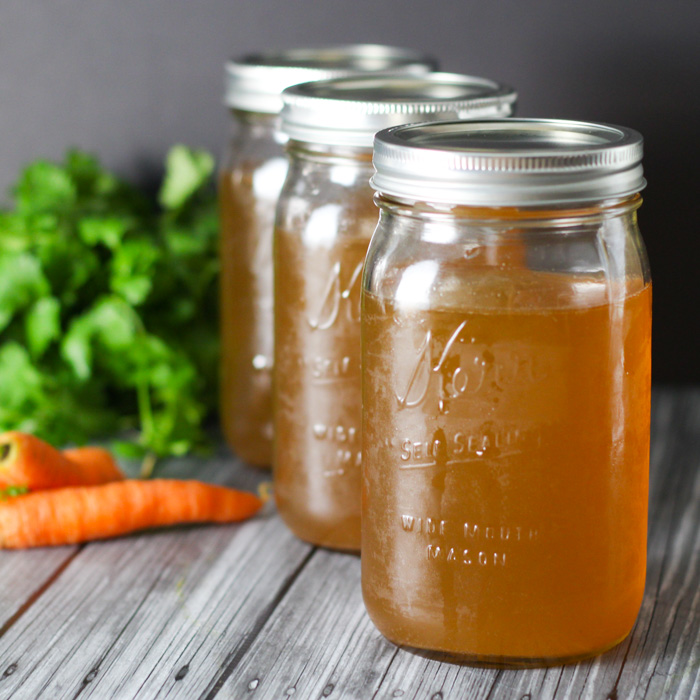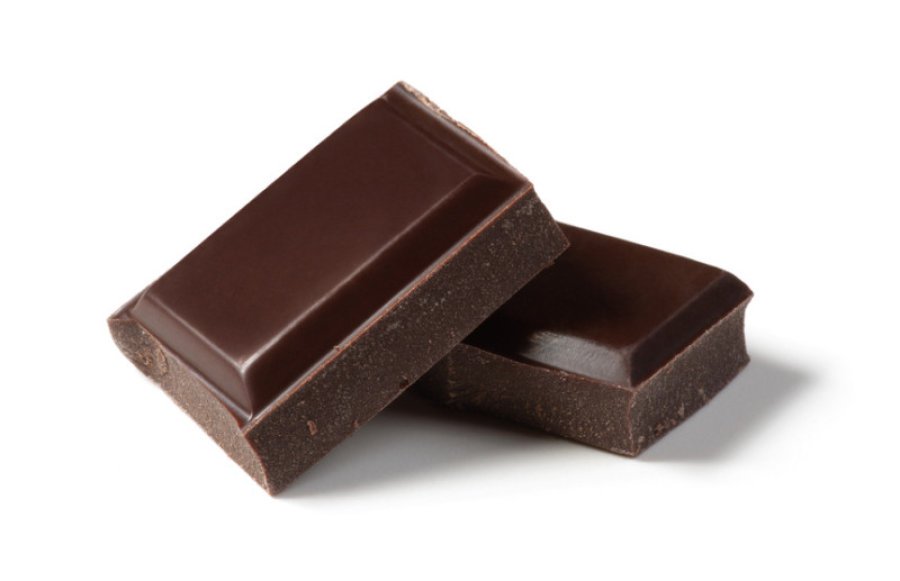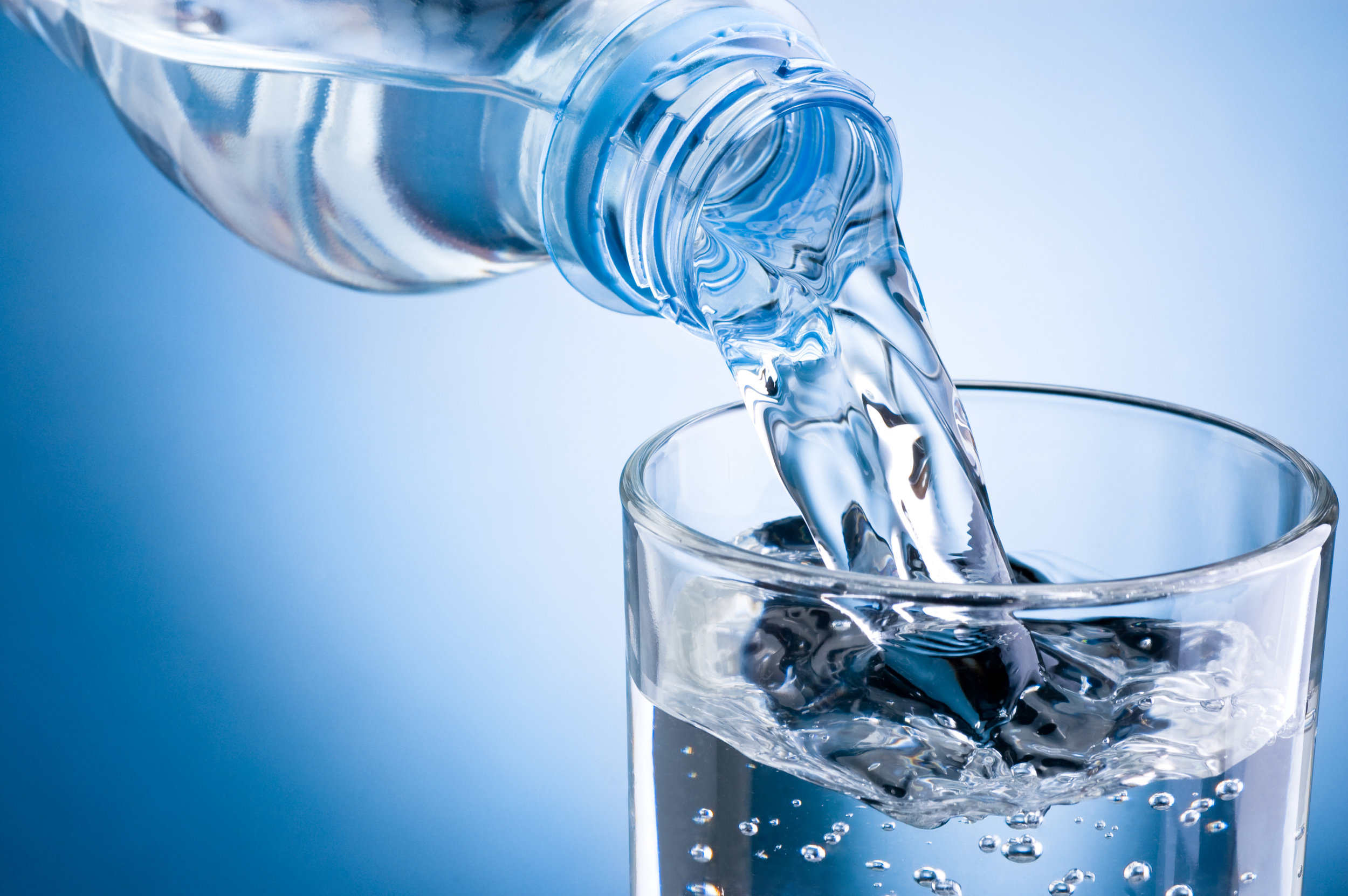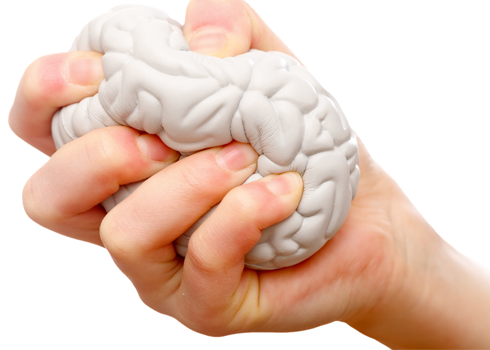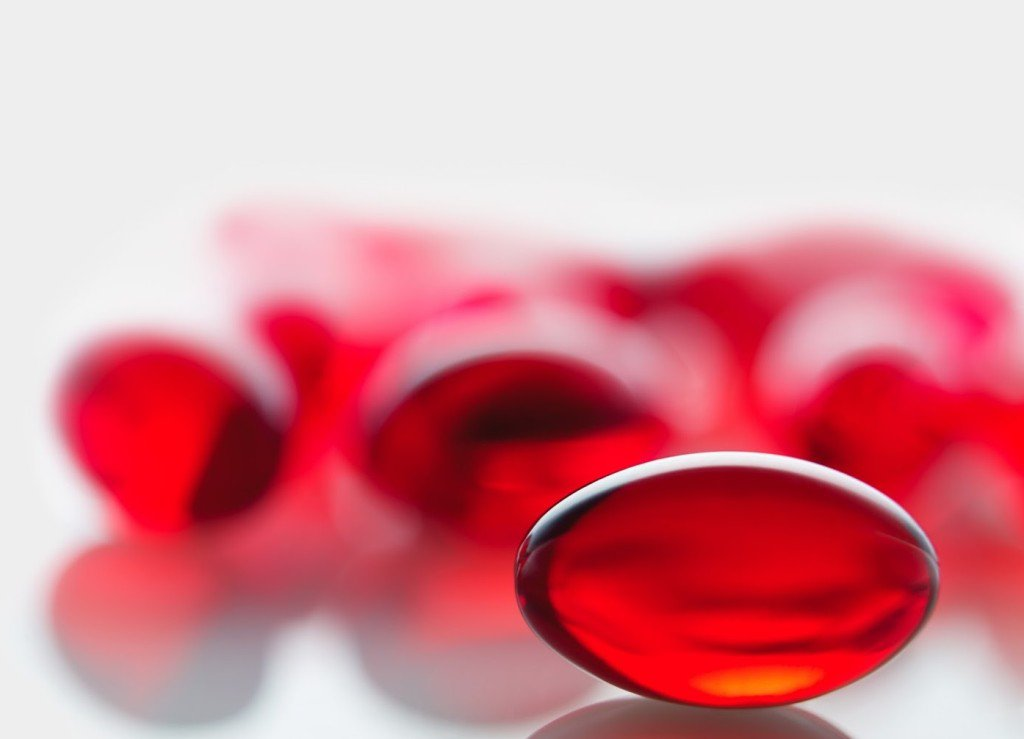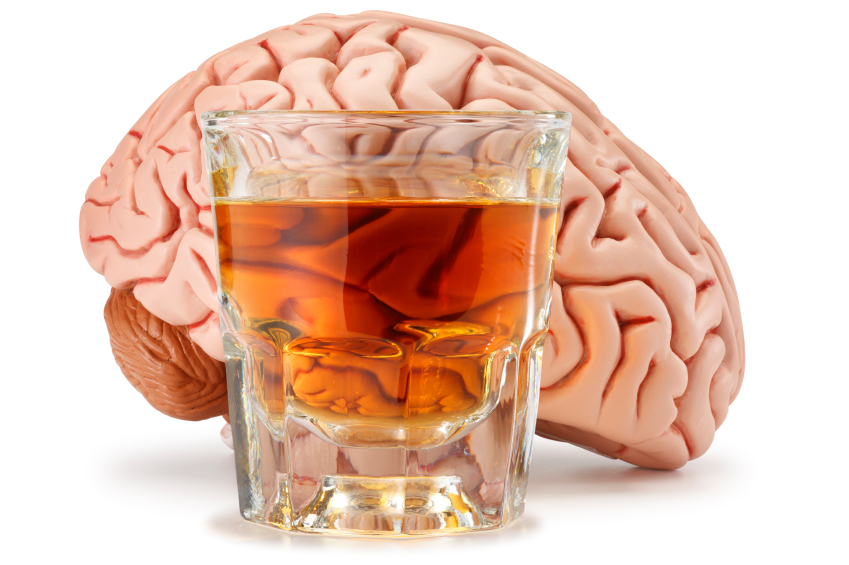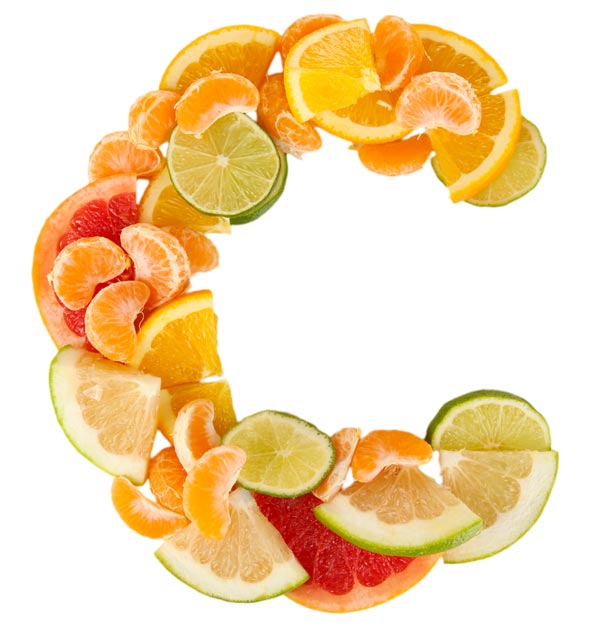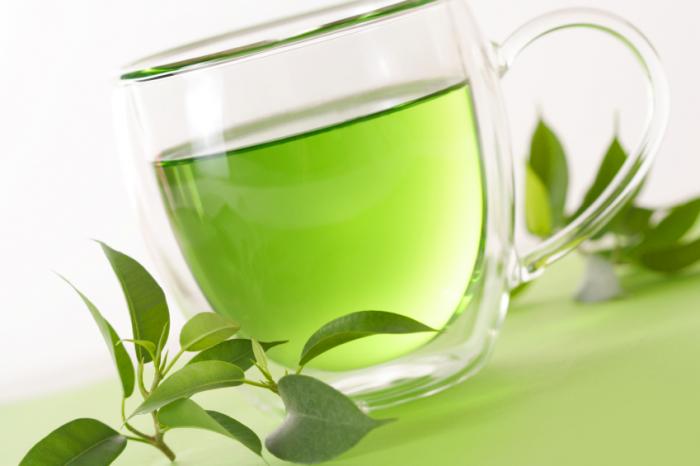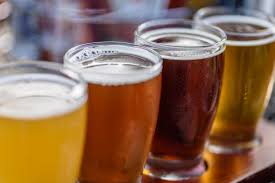“When you know better, you do better.”
Sometimes it may feel as if we have no control over our thoughts and emotions. Our minds can take on a life of their own, with no rhyme or reason as to why we're suddenly sad and anxious.
But there are always underlying causes of these mood swings, and with a better understanding of them, you can learn to manage and overcome them.
Like I have, you can connect the dots, determine your underlying triggers, learn to control them and even completely eliminate them over time.
So today I want to talk about thyroid dysfunction. It was one of the underlying issues of my chronic mental illness.
Your thyroid is a small butterfly-shaped gland located in your neck below your Adam’s apple.
It’s one of your most important glands, producing hormones – thyroxine (T4) and triiodothyronine (T3) – which impact the health and functioning of your entire body.
In fact, normal metabolism and energy levels depend on these hormones.
Your thyroid also plays a key role in the optimal health and functioning of your brain. It can impact your cognition, concentration, mood, memory and emotions.
So when your thyroid hormones are out of balance, you can be too, and brain and mental problems can arise.
Your thyroid can either be overactive and produce too much thyroid hormone (hyperthyroidism), or underactive and produce too little thyroid hormone (hypothyroidism).
Hypothyroidism (low thyroid) is much more common, and since I personally struggled with symptoms of hypothyroidism, this post will mostly focus on that.
Hypothyroidism can also be caused by an autoimmune conditions called Hashimoto’s thyroiditis in which the body’s immune system attacks the thyroid tissue.
According to Dr. Datis Kharrazian, author of Why Isn’t My Brain Working? and Why Do I Still Have Thyroid Symptoms?, 90% of people with hypothyroidism have Hashimoto’s.
Here are some of the common brain and mental health symptoms of low thyroid that I experienced:
Chronic fatigue
Brain fog
Low mood
Forgetfulness
Weakness
Sluggishness
Sounds just like depression, doesn’t it?
You Don't Have Mental Illness, You Have Thyroid Problems
Many studies show that people with cognitive, emotional and behavioural disturbances have lower levels of thyroid hormone than the general population, and their psychiatric symptoms improve when they take thyroid hormone.
The following symptoms and disorders have been linked to thyroid problems (69-86):
Depression
Anxiety
Bipolar disorder, mania and mood swings
Irritability and rage
Insomnia
Paranoid schizophrenia and psychosis
Dementia and confusion
Social anxiety disorder
Generalized anxiety disorder
Borderline personality disorder
Attention-deficit hyperactivity disorder (ADHD)
In fact, many people struggling with these conditions see better improvements when they are treated with thyroid hormone than when they are treated with psychiatric medication (and experience fewer side effects).
“Psychiatric patients with subclinical hypothyroidism - especially those with incomplete responses to psychotropic therapy - should usually be treated with thyroid hormone. In some patients with no clear evidence of a biochemical or clinical thyroid disorder, mood symptoms nevertheless respond to thyroid hormone.”
A number of different medical practitioners and researchers have written books about how thyroid problems can negatively affect brain and contribute to mental illness:
“Brain cells have more thyroid hormone receptors than any other tissue, which means that a proper uptake of thyroid hormone is essential for the brain cells to work properly.” – Dr. Barry Durrant-Peatfield, MD, Author of Your Thyroid and How to Keep It Healthy
“How much of what we call “mental illness” is actually thyroid-driven? In my experience, a vast majority.” – Dr. Kelly Brogan, MD, Author of A Mind of Your Own: The Truth About Depression and How Women Can Heal Their Bodies to Reclaim Their Lives
"T3 [thyroid hormone] is actually a bonafide neurotransmitter. If you don’t have enough T3, or if its action is blocked, an entire cascade of neurotransmitter abnormalities may ensue, which can lead to mood and energy changes, including depression and anxiety.”– Dr. Christiane Northrup, MD, Author of Women's Bodies, Women's Wisdom: Creating Physical and Emotional Health and Healing
“Scientists now consider thyroid hormone one of the major players in brain chemistry disorders. And as with any brain chemical disorder, until treated correctly, thyroid hormone imbalance has serious effects on the patient’s emotions and behavior.” – Dr. Ridha Arem, MD, Author of The Thyroid Solution: A Mind Body Program for Beating Depression and Regaining Your Emotional and Physical Health
“There’s a very tight correlation between hypothyroidism and depression. Unfortunately, patients are misdiagnosed with depression when really they have low thyroid. There are well designed clinical trials to show you that your active thyroid hormone is essential to a happy mood. Correcting and nourishing the thyroid gland is absolutely imperative in order to improve mood.” – Suzy Cohen, Author of Thyroid Healthy: Lose Weight, Look Beautiful and Live the Life You Imagine
“People with mental health issues have greater rates of thyroid antibodies and Hashimoto's. I've had so many clients who were misdiagnosed. They were on heavy-duty psychotropic medications. They were hospitalized. But it was their thyroid disorder that was causing their issues.” – Dr. Izabella Wentz, PharmD, Author of Hashimoto's Thyroiditis: Lifestyle Interventions for Finding and Treating the Root Cause
So if you struggle with brain or mental illness, you likely do not need a prescription for antidepressants, antipsychotics and anti-anxiety medication. What you really need is to support your thyroid. Treating the underlying thyroid problem is critical to alleviating the associated psychiatric symptoms.
Luckily, there are easy, natural ways for you to do just that.
Below are 13 main strategies I’ve used to balance my thyroid hormones and improve thyroid function.
Before implementing all of them, I highly recommend getting a full thyroid panel so that you know your starting point.
1. Cut Out Gluten
Certain foods can disrupt proper thyroid function and you should avoid them to optimize brain and mental health.
Gluten-containing grains (barley, wheat, rye, spelt) are the worst offenders.
The problem with gluten is that it can increase intestinal permeability (leaky gut syndrome). When this happens, small particles of food can leak into your bloodstream. Your immune system sees these food particles as foreign entities and attacks them, increasing inflammation throughout your body.
On top of this, the molecular structure of gliadin (the protein found in gluten) resembles that of the thyroid gland. So when gliadin enters your bloodstream, your immune system not only attacks the gliadin, but also your thyroid tissue because of its close resemblance. And this can cause many brain and mental health problems (11-13).
Research shows that people with celiac disease and gluten intolerance are more likely to have thyroid diseases and mental illnesses, and vice versa (1-10).
“Many people that have hypothyroidism really have gluten sensitivity. Over time, they actually have significant brain degeneration. When people degenerate their brain, one of the first things they get is depression.”
Thyroid function, and therefore brain and mental health, will often improve after the elimination of gluten-containing grains.
2. Eat Enough Calories and Carbohydrates
Making sure you eat enough calories and carbohydrates on a daily basis is critical for optimal thyroid and brain function.
A landmark paper, known as the Vermont Study, found that thyroid hormone drops when you don’t eat enough calories and carbohydrates (14).
Several other studies also show that ketogenic low-carb diets can suppress thyroid function and reduce thyroid hormone. This is because carbohydrates play a key role on the production of thyroid hormone (15-18).
In previous posts, I have mentioned that fasting and ketogenic dieting can have beneficial effects on your brain. This is still true. However, it's important to note fasting and low-carb diets should be followed intermittently and not consistently over long stretches of time, mainly because of their detrimental effects on the thyroid. I prefer to take exogenous ketones instead. They immediately increase my mental clarity without having to restrict carbohydrates.
My Free Grocery Shopping Guide for Optimal Brain Health contains plenty of healthy, nutrient-dense sources of carbohydrate, including:
Yams
Squash
Potatoes
Carrots
Other root vegetables
Berries
Apples
Bananas
Raw honey
3. Avoid Vegetable Oils
You should also significantly limit all refined vegetable oils, including soybean, corn, safflower, sunflower, and canola.
These oils are predominantly made up of omega-6 polyunsaturated fatty acids (PUFAs), which are highly unstable and oxidize very easily within your body.
Unfortunately, like gluten, rancid PUFAs are everywhere and hard to avoid. Most commercially-prepared processed foods include them.
And your thyroid is particularly vulnerable to their effects.
Dr. Raymond Peat, PhD, says that the sudden increase of fragile and rancid polyunsaturated oils into our food supply after World War II has caused many changes in human health, particularly thyroid function and hormones:
“Their [polyunsaturated oils] best understood effect is their interference with the function of the thyroid gland. Unsaturated oils block thyroid hormone secretion, its movement in the circulatory system, and the response of tissues to the hormone. By 1950, then, it was established that unsaturated fats suppress the metabolic rate, apparently creating hypothyroidism. The more unsaturated the oils are, the more specifically they suppress tissue response to thyroid hormone, and transport of the hormone on the thyroid transport protein. And in 1980, experimenters demonstrated that young rats fed milk containing soy oil incorporated the oil directly into their brain cells, and had structurally abnormal brain cells as a result.”
4. Eat coconut oil
I’ve discussed the brain and mental health benefits of coconut oil before here.
It can help reduce brain fog and enhance your cognitive performance. And it may be accomplishing this by supporting your thyroid.
According to Dr. Raymond Peat, coconut oil is very beneficial to the brain and thyroid:
“Coconut oil has a general pro-thyroid action by diluting and displacing anti-thyroid unsaturated oils. And brain tissue is very rich in complex forms of fats. An experiment in which pregnant mice were given diets containing either coconut oil or unsaturated oil showed that brain development was superior in the young mice whose mothers ate coconut oil. Because coconut oil supports thyroid function, and thyroid governs brain development, including myelination, the result might simply reflect the difference between normal and hypothyroid individuals.”
And you don’t need to stick with coconut oil. Coconut milk, water and meat are other ways to get the benefits of coconut.
5. Try Low-level Laser Therapy (LLLT)
Low-level laser therapy (LLLT) is probably the best cutting-edge way to support your thyroid. I wrote about it previously here.
Using it on my thyroid has made a remarkable difference in my energy levels and mental clarity. And this is likely because of an increase in my thyroid hormones.
Multiple studies show that LLLT can improve the production of thyroid hormones and improve thyroid function in patients with chronic autoimmune thyroid disease. Study participants were able to reduce the dosage of their thyroid medication (36, 37).
A study from Brazil showed that LLLT not only reduced the need for thyroid medication in all patients, but 9 months later after the study concluded, it also showed that 47% of patients no longer required any thyroid medication at all. Participants with Hashimoto’s thyroiditis also saw a reduction in their anti-thyroid antibodies by more than 39% (40).
A Russian study also demonstrated a 97% success rate when treating women with subclinical hypothyroidism. Researchers concluded LLLT should be the “method of choice in the treatment of [subclinical hypothyroidism], especially in the elderly” (40).
Animal research has found similar results in rats and rabbits (38, 39).
I shine the Optimal 1000 Brain Photobiomodulation Therapy Light (Combo Red/NIR) device on my thyroid. It includes both red and infrared light. I’m convinced most people would benefit from it.
When I’m travelling, I take this smaller and more convenient device with me.
Infrared saunas are another excellent way to expose yourself to infrared light and support thyroid function. Check out my post about the benefits here.
6. Get Enough Vitamin A and D
Fat soluble vitamins A and D are also critical for optimal thyroid and brain function.
Vitamin D is necessary to help transport thyroid hormone into your cells and deficiency is quite common in people with thyroid problems. Vitamin D deficiency is also associated with thyroid disease and supplementation has been shown to benefit the thyroid. (22-24).
I previously discussed the brain health benefits of vitamin D here.
You should test and monitor your Vitamin D levels regularly.
Vitamin A helps your body produce thyroid hormone and protects the thyroid gland from oxidative stress (which is higher in people with thyroid issues). Research also shows that vitamin A can reduce your risk of hypothyroidism (19-21).
However, I personally don’t recommend you supplement with vitamin A. It’s better to get it from food. Pastured eggs, grass-fed liver and butter (or ghee if you can't tolerate butter) are ideal sources.
Cod liver oil is another great option as it contains both vitamin A, vitamin D and omega-3 fatty acids all together. I take it every so often.
7. Get Enough Minerals
Your thyroid gland needs specific trace minerals to do its job properly.
I take and recommend a multi-mineral supplement so that you have all the minerals you need to support brain and thyroid health. It includes a small amount of iodine, selenium, magnesium and zinc.
Iodine is the most important, as it’s one of the building blocks used by your thyroid to create hormones.
However, I don’t recommend supplementing with large doses of iodine separately. Many functional medicine practitioners that I’ve learned from over the years have told me that high iodine intake through supplements can often do more harm than good. Too much supplemental iodine has been shown to cause further thyroid problems (66-68).
So I think the small amount in a multi-mineral is enough.
And getting some more iodine from whole foods, including seafood and sea vegetables, can also benefit you since they contain other nutrients that can support your thyroid.
Selenium is another indispensable mineral for your thyroid and brain health.
It helps regulate and recycle your iodine stores, and selenium-based proteins help regulate thyroid hormone synthesis and metabolism.
Without it, you’ll likely experience low-thyroid symptoms.
Brazil nuts are the richest dietary source of selenium.
Low levels of zinc can also lead to depleted thyroid hormones, and vice versa (34). This is just another reason to supplement with zinc.
As I’ve discussed before, a zinc deficiency can also contribute to stress and anxiety.
And although it isn't mentioned very often, magnesium is also critical for optimal thyroid function. The thyroid gland can't function properly without it (89).
I previously discussed how it can help a lot of people with depression and anxiety here.
8. Reduce Stress and Cortisol
High levels of physical and mental stress can be detrimental to your thyroid function.
Your adrenal glands – two walnut-shaped glands that sit atop the kidneys – secrete your stress stress hormones, such as cortisol, epinephrine and norepinephrine.
Research shows that cortisol inhibits thyroid hormones from getting into your cells, and weakened adrenal glands can lead to hypothyroid symptoms over time (35).
That’s why it’s critical that you manage stress.
I highly recommend you try to do something every day to manage it.
The most effective way to significantly and permanently reduce your stress and anxiety is neurofeedback. It’s advanced, guided meditation and I previously wrote about my experience with it here.
If you can’t access neurofeedback, taking up a daily meditation practice is an excellent idea.
I’m a big fan of the Muse headband . It can guide your meditation. Similar to neurofeedback, it gives you real-time feedback while you meditate. I wrote an entire review about it here, and you can get it through the Muse website.
I also find massage, acupuncture, heart-rate variability (HRV) training and an acupressure mat very helpful as well.
Lying on the acupressure mat while using my EmWave2 for just 10 minutes relaxes my entire body and mind. I do this at night before bed.
Supplements that can help with stress include zinc, ashwagandha and phosphatidylserine, which have been shown to lower cortisol levels (87, 88).
This anti-anxiety supplement also includes a number of natural compounds that have helped me manage my stress over the years.
Lastly, you should get enough sleep and don’t exercise too much. The stress caused by excessive exercise can wear you’re your body and contribute to thyroid problems. So make sure you get plenty of rest and recover between workout sessions.
9. Take Thyroid-Supporting Herbs
A number of different herbs can assist your thyroid gland.
Ashwagandha is one of my favourites. Not only can it reduce stress and anxiety, but a number of studies show that it can boost thyroid hormones (25-29).
Bacopa is another adaptogen that has been shown to increase thyroid (T4) hormone levels by 42% (30).
Forskolin stimulates the release of thyroid hormones (31).
And one study found that ginseng increases and normalizes thyroid hormone levels (32).
And last but not least, researchers say that rhodiola can “improve the quality of life of patients with short-term hypothyroidism” (33).
Rhodiola also has a number of brain and mental health benefits. I explored them previously here.
I’ve experimented with all of these herbs and they have improved my brain and mental health.
But it’s good to know they have some beneficial effects on my thyroid as well.
10. Eat “Head to Tail”
Whole plant foods tend to be much healthier when they’re left whole, as they tend to have various nutrients that work together synergistically.
The same can be said about animal food.
“Muscle meats contain so much tryptophan and cysteine that a pure meat diet can suppress the thyroid. In poor countries, people have generally eaten all parts of the animal, rather than just the muscles – bones, cartilage, skin, organs, and other odd bits. About half of the protein in an animal is collagen, and collagen is deficient in tryptophan and cysteine. This means that, in the whole animal, the amino acid balance is similar to the adult’s requirements.
”
In other words, muscle meat (chicken breasts, lean beef) shouldn’t be your only source of animal protein. Our ancestors didn’t eat this way, so neither should we.
Your body and thyroid prefer and expect to receive a balance of amino acids from different parts of whole animals.
That’s why I recommend “head-to-tail eating” – consuming a wide variety of proteins from the entire animal.
Along with muscle meat, you should regularly cook and eat organ meats such as liver and bone broth.
Bone broth contains collagen, gelatin and amino acids such as glycine and proline that help the body better metabolize muscle meat.
Organ meats such as liver have an abundance of beneficial nutrients that aren’t found in muscle meat alone. For example, it’s much higher in vitamin A, which is important for optimal thyroid health (19, 20).
I previously discussed the benefits of liver in more depth here.
I personally don’t like the taste of liver and bone broth can be inconvenient to make all the time, so I often supplement with grass-fed beef liver capsules and drink high-quality pre-made bone broth.
I also take a Multi-Glandular For Men, which contains a number of different organ tissues. There is also one for women.
But if you’re actually interested in learning about how to cook and incorporate more whole animal proteins into your diet, I recommend checking out the book Odd Bits: How to Cook the Rest of the Animal by Jennifer McLagan.
11. Limit Halogens
Your thyroid doesn’t know the difference between iodine, and other halogens such as bromine, fluorine, chlorine, and perchlorate, which are often found in tap water.
So your thyroid soaks them up and uses them like iodine.
By occupying iodine receptors, they worsen iodine deficiency, inhibit the production of your thyroid hormones and contribute to thyroid dysfunction.
Studies show that chlorine interferes with proper conversion of thyroid hormone (50, 58-61).
That’s why I recommend filtering your drinking and shower water. Brita filters aren't enough because they don’t remove fluoride. I use this water filter to make sure I’m drinking the purest water available. It filters everything out of the water. I also use this filter to remove chlorine from my shower water.
The research shows that bromide in particular can cause a lot of problems. Bromide is found in pesticides, prescription medication, plastic products and personal care products. PBDE (bromide) fire retardants have been added to mattresses, carpeting, electronics, furniture and car interiors since the 1970s.
Even small amounts of bromide can be problematic, depleting iodine and weakening the thyroid gland. Bromide levels are 50 times higher in thyroid cancer than normal thyroid tissue, and elevated levels of bromide have been linked to mental illness, including depression and schizophrenia (50-57).
12. Avoid Environmental and Dietary Mycotoxins
Mycotoxins – toxic metabolites produced by mold – can also disrupt normal thyroid function.
Mycotoxins are released into the air in water-damaged buildings, and you may not realize it’s affecting your brain and thyroid health until you develop certain symptoms. And even then, people frequently won’t make the connection between the mold and their health.
That’s what happened to me, and my hormonal health went downhill, along with my brain and mental health. Luckily I’ve recovered since then.
Mycotoxins are known hormone disruptors that cause inflammation, and a couple of studies mention that there is an increased frequency of “thyroid, immune dysfunction and autoimmune conditions” in people exposed to water-damaged building (41, 42).
And one study shows that mold exposure is correlated with hypothyroidism and Hashimoto’s thyroiditis (43).
Kurt and Lee Ann Billings wrote the book Mold: The War Within after extensive personal bouts with toxic mold exposure. They write extensively about their experience and recovery and describe ongoing problems with thyroid dysfunction.
After I moved out of the moldy home, I became extremely sensitive to any environmental mold and mycotoxins.
I now use an air filter in my apartment. It removes any mold spores and smoke that may be in the air.
Low amounts of mycotoxins are often found in some seemingly healthy foods, such as tea, nuts, grains, coffee and chocolate. I recommend finding the freshest, highest-quality, organic versions of these foods.
Lastly, if exposed to mold or their toxins, you should supplement with activated charcoal or bentonite clay.
Activated charcoal and bentonite clay are potent natural treatments that can trap toxins and chemicals, allowing them to be flushed out of your body.
13. Avoid and Remove Other Environmental Toxins
Mold and other halogens aren’t the only endocrine disruptors in your environment that can affect your thyroid metabolism and function.
In the book Thyroid Mind Power, Dr. Karilee Shames reports that “the last 40 years have witnessed a massive increase in the amount of hormone-disrupting synthetic chemicals, finding their way into our air, food and water. The most sensitive and highly susceptible of human tissues turned out to be the thyroid gland.”
Here are some common ones:
Bisphenol A – found in plastic bottles and containers. I recommend you only eat and drink out of glass, ceramic and stainless steel. Avoid storing any of your food in plastic too. BPA-free plastic isn’t much better for you and can still disrupt hormonal health.
Perfluorooctanoic acid (PFOA) – found in common household products including non-stick cookware and waterproof fabrics. Researchers have found that people with higher levels of PFOA (perfluorooctanoic acid) have a higher incidence of thyroid disease (44, 45).
Other pesticides and chemical additives – You should avoid processed food and eat organic as often as possible, wash all produce thoroughly to minimize your pesticide exposure, and find personal care products that don’t include toxic chemicals.
I also recommend increasing your levels of glutathione – your body’s main antioxidant and master detoxifier – to help your body combat the above substances from your body. I do this by supplementing with glutathione on regular basis.
Or you could take NAC and Vitamin C to help your body produce more of its own glutathione.
Researchers have found that a decrease in thyroid function could be reversed by NAC supplementation, which increased glutathione. This is because glutathione plays a key role in the production and conversion of your thyroid hormones (46-49).
Epsom salt baths, infrared saunas, and turmeric can also help your body release and remove environmental toxins.
Summary and Conclusion
With the right information, you can make simple choices to improve thyroid health.
Here's a summary of everything we've gone over:
Cut out gluten-containing grains (barley, wheat, rye, spelt)
Don't follow a long-term ketogenic low-carb diet and eat enough calories and healthy sources of carbohydrates. See my free food guide for plenty of options. And consider taking exogenous ketones to get the cognitive benefits of a ketogenic diet without actually having to follow the diet.
Avoid refined vegetable oils, including soybean, corn, safflower, sunflower, and canola
Eat coconut oil
Supplement with Vitamin D, and make sure you get enough Vitamin A from egg yolks, grass-fed liver and ghee
Take a multimineral with iodine, selenium and zinc
Reduce stress with deep sleep, massage, acupuncture, meditation, neurofeedback, the Muse headband, an acupressure mat, the EmWave2, ashwagandha and phosphatidylserine
Take herbs such as bacopa, ginseng, forskolin and rhodiola
Eat beef liver and bone broth
Filter your drinking water with a filtration system to avoid fluoride, chlorine and other halogens
Avoid mold, mycotoxins and other environmental toxins, and protect yourself from them with an air filter, activated charcoal and glutathione
So with that, I want to leave you with a quote from a book I read recently by Sam Harris, called Free Will.
I think this quote is appropriate considering the wide variety of factors that underlie brain and mental health problems:
“Becoming sensitive to the background causes of one’s thoughts and feelings can - paradoxically - allow for greater creative control over one’s life. It is one thing to bicker with your wife because you are in a bad mood; it is another to realize that your mood and behaviour have been caused by low blood sugar. This understanding reveals you to be a biochemical puppet, of course, but it also allows you to grab hold of one of your strings: A bite of food may be all your personality requires. Getting behind our conscious thoughts and feelings can allow us to steer a more intelligent course through our lives (while knowing, of course, that we are ultimately being steered).”
So even though it seems like there are an overwhelming amount of “strings” to pull, realize that you don’t have to pull them all at once.
You just have to start with one, and go from there.
And then over time, you'll start to get a handle on all of them, and you'll heal.
References:
(1) http://www.ncbi.nlm.nih.gov/pubmed/11280546
(2) http://www.ncbi.nlm.nih.gov/pubmed/12217453
(3) http://www.ncbi.nlm.nih.gov/pubmed/11123714
(4) http://www.ncbi.nlm.nih.gov/pubmed/10529537
(5) http://www.ncbi.nlm.nih.gov/pmc/articles/PMC2111403/
(6) http://www.eje-online.org/content/130/2/137.abstract
(7) http://www.ncbi.nlm.nih.gov/pubmed/15244201
(8) http://www.ncbi.nlm.nih.gov/pubmed/9872614
(9) http://www.ncbi.http://www.ncbi.nlm.nih.gov/pubmed/12919165lm.nih.gov/pubmed/12919165
(10) http://www.ncbi.nlm.nih.gov/pubmed/11768252
(11) http://www.ncbi.nlm.nih.gov/pubmed/12366374
(12) http://www.ncbi.nlm.nih.gov/pubmed/19014325
(13) http://www.ncbi.nlm.nih.gov/pmc/articles/PMC1808742/
(14) http://www.ncbi.nlm.nih.gov/pmc/articles/PMC371281/
(15) http://www.ncbi.nlm.nih.gov/pubmed/6761185
(16) http://www.ncbi.nlm.nih.gov/pubmed/3740086
(17) http://ajcn.nutrition.org/content/35/1/24.full.pdf
(18) http://www.ncbi.nlm.nih.gov/pubmed/1249190
(19) http://www.ncbi.nlm.nih.gov/pubmed/6470830
(20) http://www.ncbi.nlm.nih.gov/pubmed/23378454
(21) http://ajcn.nutrition.org/content/34/8/1489.abstract
(22) http://www.ncbi.nlm.nih.gov/pmc/articles/PMC3921055/
(23) http://www.ncbi.nlm.nih.gov/pubmed/12919165
(24) http://www.ncbi.nlm.nih.gov/pubmed/10750047
(25) http://www.ncbi.nlm.nih.gov/pubmed/19789214
(27) http://onlinelibrary.wiley.com/doi/10.1211/146080800128735782/abstract
(28) http://www.ncbi.nlm.nih.gov/pubmed/9811169
(29) http://www.ncbi.nlm.nih.gov/pubmed/10619390
(30) http://www.sciencedirect.com/science/article/pii/S037887410200048X
(31) http://www.ncbi.nlm.nih.gov/pubmed/6327383
(32) http://www.ncbi.nlm.nih.gov/pubmed/6327383
(33) http://www.ncbi.nlm.nih.gov/pubmed/20946017
(34) http://www.ncbi.nlm.nih.gov/pmc/articles/PMC3746228/
(35) http://www.ncbi.nlm.nih.gov/pubmed/17002934
(36) http://www.ncbi.nlm.nih.gov/pubmed/20662037
(37) http://www.ncbi.nlm.nih.gov/pubmed/22718472
(38) http://www.ncbi.nlm.nih.gov/pubmed/25265487
(39) http://www.ncbi.nlm.nih.gov/pubmed/25975382
(40) http://valtsus.blogspohttp://va
(41) http://www.ncbi.nlm.nih.gov/pmc/articles/PMC3654247/
(42) http://www.ncbi.nlm.nih.gov/pubmed/15143854
(43) http://www.ncbi.nlm.nih.gov/pubmed/430949
(44) http://www.ncbi.nlm.nih.gov/pubmed/24407430
(45) http://www.ncbi.nlm.nih.gov/pmc/articles/PMC2866686/
(46) http://www.ncbi.nlm.nih.gov/pubmed/21540553?dopt=Abstract
(48) http://www.ncbi.nlm.nih.gov/pubmed/7408784
(49) http://www.ncbi.nlm.nih.gov/pubmed/7052928
(50) http://www.ncbi.nlm.nih.gov/pubmed/8909694
(51) http://www.ncbi.nlm.nih.gov/pubmed/15255296
(52) http://www.ncbi.nlm.nih.gov/pubmed/10999431
(53) http://www.ncbi.nlm.nih.gov/pubmed/9542578
(54) http://www.ncbi.nlm.nih.gov/pubmed/9341949
(55) http://www.ncbi.nlm.nih.gov/pubmed/8909694
(56) http://www.ncbi.nlm.nih.gov/pubmed/6548284
(57) http://www.ncbi.nlm.nih.gov/pubmed/8909694
(58) http://www.ncbi.nlm.nih.gov/pmc/articles/PMC3890436/
(59) http://www .ncbi.nlm.nih.gov/pubmed/1087230
(60) http://www.ncbi.nlm.nih.gov/pubmed/19318504
(61) http://www.ncbi.nlm.nih.gov/pmc/articles/PMC3956646/
(62) http://www.ncbi.nlm.nih.gov/pubmed/9140329
(63) http://www.ncbi.nlm.nih.gov/pubmed/21001996
(64) www.gulflink.osd.mil/library/randrep/pb_paper/mr1018.2chap10.html
(65) http://www.optimox.com/iodine-study-18
(66) http://www.ncbi.nlm.nih.gov/pubmed/7477223
(67) http://www.ncbi.nlm.nih.gov/pubmed/20517655?dopt=AbstractPlus
(68) http://www.eymj.org/Synapse/Data/PDFData/0069YMJ/ymj-44-227.pdf
(69) https://www.ncbi.nlm.nih.gov/pubmed/15213796
(70) http://www.drrichardhall.com/Articles/hashimoto.pdf
(71) http://www.ncbi.nlm.nih.gov/pubmed/11958781
(72) http://www.ncbi.nlm.nih.gov/pubmed/17141745
(73) http://bmcpsychiatry.biomedcentral.com/articles/10.1186/1471-244X-4-25
(74) http://cpementalhealth.biomedcentral.com/articles/10.1186/1745-0179-1-23
(75) http://www.ncbi.nlm.nih.gov/pubmed/19215985
(76) http://www.ccjm.org/indhttp://www.ccjm.org/index.php?id=107937&tx_ttnews[
(77) http://www.health.harvard.edu/diseases-and-conditions/thyroid-deficiency-and-mental-health
(78) http://www.ncbi.nlm.nih.gov/pubmed/20404728
(79) http://www.ncbi.nlm.nih.gov/pubmed/27268005
(80) http://www.ncbi.nlm.nih.gov/pubmed/24480318
(81) http://www.ncbi.nlm.nih.gov/pubmed/24480318
(82) http://www.eje-online.org/content/138/1/1.full.pdf
(83) http://www.ncbi.nlm.nih.gov/pubmed/24443228
(84) http://www.ncbi.nlm.nih.gov/pubmed/24345793
(85) http://www.ncbi.nlm.nih.gov/pmc/articles/PMC3013313/
(86) http://www.ncbi.nlm.nih.gov/pubmed/23380316
(87) http://www.ncbi.nlm.nih.gov/pubmed/23439798
(88) http://www.ncbi.nlm.nih.gov/pubmed/1325348

